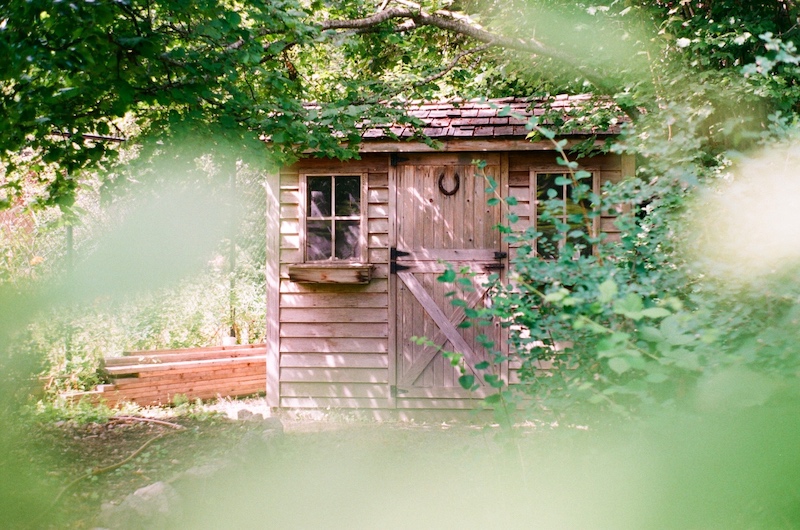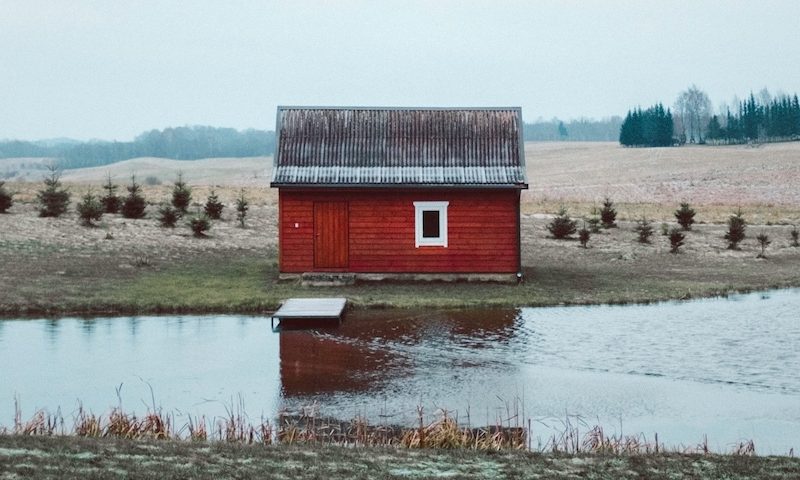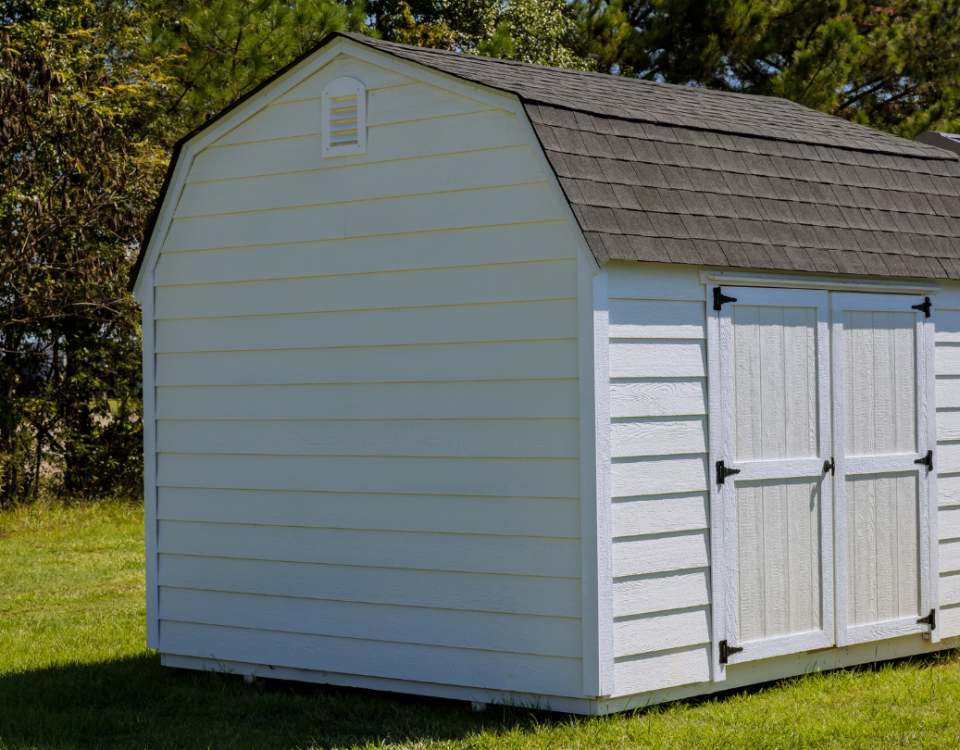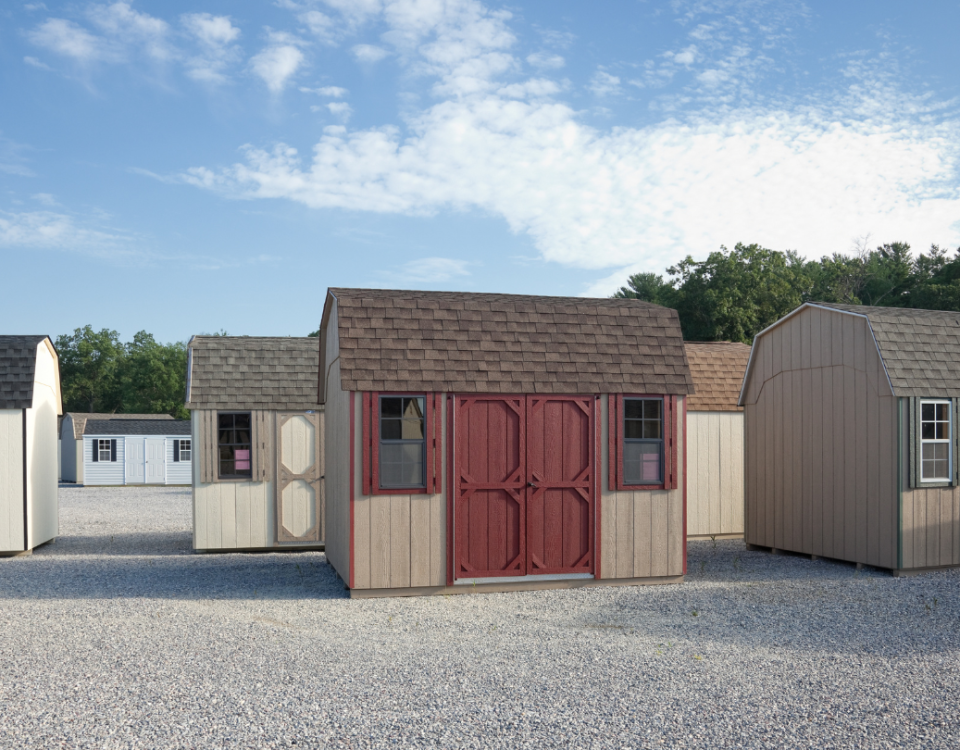
What Size Utility Shed Do You Need?
October 15, 2019
A Guide to HOA Approved Sheds in Charlotte NC
November 12, 2019Adding an outdoor utility shed is a great way to add storage to your property. But determining the type of shed you need—either plastic or wooden—can be a tough decision. How do you decide? Does it really make a difference? What are the pros and cons?
Here are 6 pros and cons for both plastic and wooden utility sheds to help you make your decision—
Plastic Utility Sheds
Pro: Plastic utility sheds have come a long way. They aren’t built from traditional plastic (such as the type used to make shopping bags or drink bottles). In other words, they aren’t flimsy or cheap. The plastic used to assemble plastic utility sheds is hard, UV-resistant, and designed to be used outdoors.
Because of the hard plastic used for these sheds, they are also easy to clean and maintain—which is its greatest selling point—since outdoor tools and equipment can get dirty. Most often, cleaning plastic utility sheds requires soap, water, and elbow grease. And if you have access to a power washer, even better! Plastic typically cleans up pretty well and maintains its original look.
Con: While plastic utility sheds are built to withstand the elements, they can’t handle wind as well as wooden utility sheds. Which means anchoring a plastic utility shed to the ground is nearly a pre-requisite for long-term use. Since plastic is naturally lighter, plastic utility sheds have a reputation for blowing over in high winds, which not only jeopardizes your shed, but it also puts your storage items at risk.
Also, with regard to standing up to the elements, plastic utility sheds sometimes respond poorly to high temperatures and can buckle in the heat. So if you live in a place that gets very hot, it’s a good idea to re-consider purchasing a plastic utility shed.
Pro: Plastic utility sheds typically meet the expectations of the local or neighborhood regulations since they are standard with little to no customization. That said, it is always a good idea to check with your HOA or local regulations before getting to far in the process of adding a new shed.
Con: Security can be an issue, since plastic utility sheds are typically easier to break into than their wooden counterparts. Many plastic utility sheds do not come with steel reinforcements, nor do they have steel locking mechanisms. So if you choose to buy a plastic utility shed, you may want to carefully consider what you choose to store inside.
Also because plastic is lightweight, plastic utility sheds cannot typically handle as much weight as their wooden utility shed counterparts. So it isn’t a good idea to hang items from the walls or include much overhead storage.
Pro: Plastic utility sheds require little to no carpentry knowledge, so they are typically easier and faster to assemble. That said, “easier” doesn’t necessarily imply “easy,” and homeowners often require the expertise of a professional in order to assemble a plastic shed.
Con: Plastic utility sheds can’t be shingled or painted to match your home or existing property. And it takes a lot of time, budget, and effort to customize a plastic utility shed since most come standard. There is little variation when it comes to plastic utility sheds.
Wooden Utility Sheds
Pro: Wooden utility sheds are typically the most highly-rated outdoor sheds, in part because they are fully customizable. They can be carefully designed to match the existing home, which means they are more aesthetically pleasing. In fact, wooden sheds can be designed with widows and shutters that actually make the shed look like it is an extension of the home. Wooden sheds are not one size fits all and can truly look like a work of art.
Con: Wooden utility sheds are not usually “do it yourself.” Meaning most high-quality wooden sheds require professional carpentry and/or assembly. They require more skills and tools than plastic sheds, which may mean more budget up front, depending on the size and specifications of the structure. Building a wooden utility shed takes time, thought, and effort.
That said, the quality materials and professional assembly required for a wooden shed also means you can hang shelves and cabinets and store more items than can be stored in a plastic utility shed. Which means you can store more items in the same “total footprint” of a wooden utility shed than you can a plastic utility shed of the same size.
Another way to say this: More bang for your buck.
Pro: Wooden utility sheds are known for being durable and adaptable. And, in fact, wooden sheds last longer than plastic sheds. If you consistently care for your wooden shed, it will love you back over time. It will be an aesthetically pleasing, long-lasting storage space for many years.
Also, because wooden sheds require a sturdy frame, they typically withstand wind much better than plastic sheds.
Con: Wooden utility sheds require more maintenance than plastic sheds. First, they must be painted or stained, just as a house needs painting or stained. And just like all wooden structures, a wooden utility shed is not “set it and forget it.” From time to time, wooden sheds require repainting or other reasonable maintenance. Which means wooden sheds often require more time and attention over the long haul.
Pro: Wooden sheds can add value to the home and property. Not only can you enjoy the benefits of a wooden utility shed, but a wooden shed can be a great selling point if ever you decide to put your house on the market.
Con: Wooden sheds require more assembly time. Primarily because of the customization involved, wooden sheds take longer to build than plastic sheds. And the more customizable you want your shed to be, the more time it will take to assemble it.
So which shed would you prefer? We’d be happy to help you weigh your options and make the best decision. Call us today to discuss what you need!





